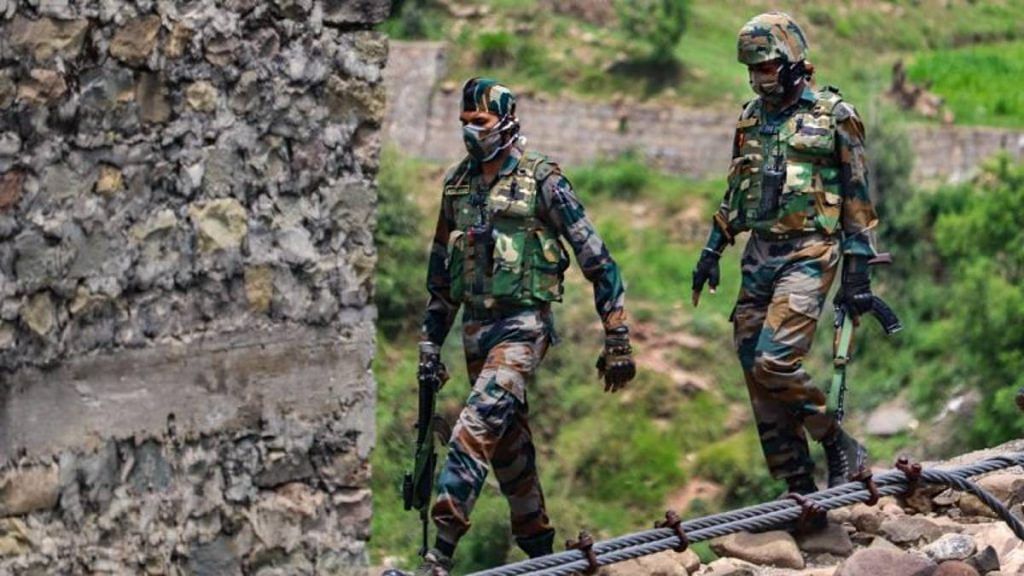On 31 October, a three-judge bench of the Supreme Court refused to entertain a Public Interest Litigation that sought to abolish the ‘Sahayak system’ in the Indian Army. In 2009, the Parliamentary Standing Committee on Defence described the practice of employing ‘Sahayaks’ as shameful that should have no place in independent India and recommended its abolition. The Committee said it expected the Ministry of Defence to stop the practice and hoped that the Ministry of Home Affairs would take similar action in respect of paramilitary and other organisations.
But the MoD, in its Action Taken Report, defended the use of Sahayaks and stated that comprehensive instructions have been issued to regulate their work. The Committee argued that it did not understand the necessity of Sahayaks in the Army when the Navy and the Air Force had no such practice. It reiterated its earlier recommendation and asked the Army to emulate its counterparts in the Navy and Air Force and immediately stop the colonial practice.
Eschewing irrelevant colonial legacies has been one of Prime Minister Narendra Modi’s favoured prescriptions to government functionaries in general. In particular, it is a point often made in his addresses to the Armed Forces Annual Joint Commander’s Conferences. With the Supreme Court upholding the government’s stance on Sahayaks instead of the Parliamentary Committee’s, this colonial legacy may have found legal closure. But that does not mean that there are no organisational and socially derived tailwinds to change some of the military practices that ought to be monitored and controlled.
Also read: Shut down canteens, relieve sahayaks — here’s how the armed forces can really cut costs
Integration and Agniveer
The heart of the malpractice in the Sahayak system pertains to the misuse of personnel for domestic purposes. This is a matter of command responsibility at all levels. There is also a case for authorising certain domestic staff for senior officers, and their spouses in certain circumstances, considering the security aspects and official commitments of those serving. But the enforcement of this practice could be shaky if it is not based on personal examples set by the senior leadership.
The chickens of this issue will come home to roost once the Integrated Theatre Commands are established and the three Services embedded in the same establishment or are working closely together. The different standards of benefits that the availability of Sahayaks confer on the Army will be called into question, which could force a change despite resistance from those who would like to protect the status quo.
The Parliamentary Committee had also stressed that Jawans are recruited to serve the nation and not the family members of officers in household work, which is demeaning and humiliating. The introduction of the Agniveer system with its four-year service tenure could provide the second tailwind for change in the utilisation of Sahayaks.
Since Sahayaks are authorised for Officers and Junior Commissioned Officers, albeit at different scales, their number in a unit is not small. Also, the combination of individual aspirations and aversion to domestic chores among the newer generation of recruits would offer resistance that will be difficult to handle unless one sticks to the rule book. The rules clearly state that Sahayaks will be used only for duties connected and relevant to the assistance required in the discharge of official duties, which include providing personal protection, maintenance of weapons, uniforms, equipment, and assistance while carrying out varied operational duties during peace and war.
Also read: Neo-nationalism defends Army’s rogue actions, but clean human rights record is key
Need reform in govt structures too
The days of utilising Sahayaks for domestic purposes in the Armed Forces certainly seem to be numbered. But this may not be the case in the larger national and state-level government structures. The practice of using government employees by certain levels of officials is widespread and unchecked. The Parliamentary Committee specifically mentioned the Ministry of Home Affairs and its organisations.
The prevention of government employees for domestic chores should become a major domain of reform requiring urgent implementation. For, there could be more ‘Bada Sahebs’ warming the chairs of civilian government departments at the central and state levels. Misutilisation and misdirection of human capital is the Achilles heel of the Indian social and bureaucratic systems. Without reform in this field, India cannot expect to leverage its true human potential.
Soon, India shall be the most populous nation in the world and eschewing avoidable social practices would be imperative for its progress. It is, therefore, disappointing that the Modi government has sanctioned post-retirement and lifetime domestic support staff for retired Judges of the Supreme Court. A move that is completely repugnant to the direction in which issues should proceed in the 75th year of the country’s Independence.
Doing away with avoidable practices in utilising government employees demands personal examples to be set by the leadership at all levels. Fundamentally, it is about the misuse of power and one’s conscience has to be the primary restraining force in these matters. Regrettably, the love of power seems to overwhelm the power of love for the nation.
Lt Gen (Dr) Prakash Menon (retd) is Director, Strategic Studies Programme, Takshashila Institution; former military adviser, National Security Council Secretariat. He tweets @prakashmenon51. Views are personal.
(Edited by Prashant)
